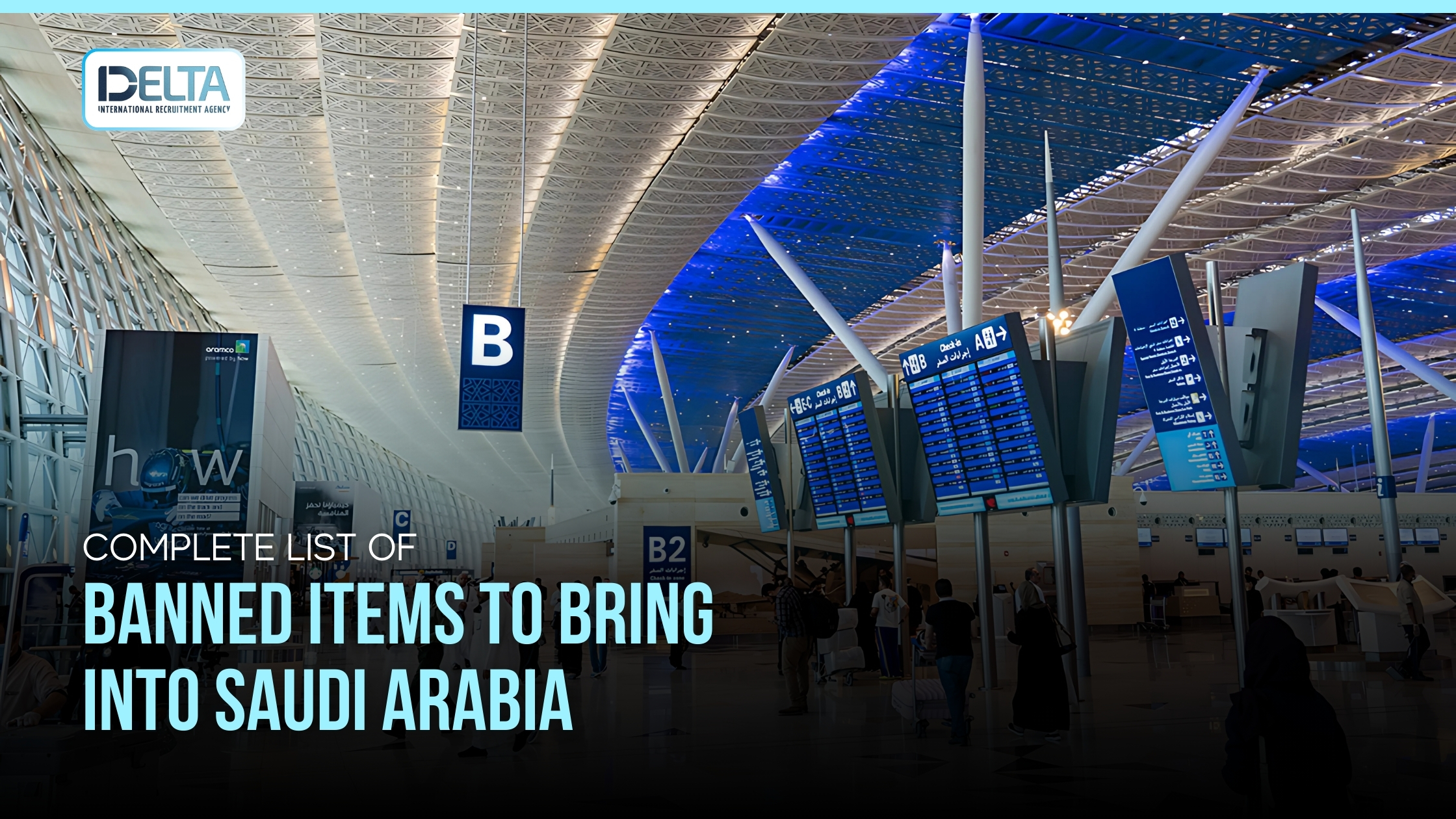Traveling to Saudi Arabia can be an exciting experience, but it’s essential to prepare appropriately to avoid any complications at customs.
The Kingdom has strict regulations about what can and cannot be brought into the country, and violating these rules can lead to severe consequences, including fines, confiscation of goods, or even legal action. Many travelers are unaware of some of the less obvious prohibited items, which could result in unnecessary delays or penalties. This detailed guide will help you navigate these restrictions and ensure a smooth entry into Saudi Arabia.
Let’s give you a comprehensive list of banned items you should avoid bringing into the Kingdom. Whether you're traveling for business or leisure, understanding these regulations will save you from potential hassles at customs.
Why Does Saudi Arabia Have Strict Import Rules?
Saudi Arabia enforces strict import laws to align with its Islamic values, cultural norms, and national security concerns. The banned items list reflects the country's commitment to maintaining its religious and cultural integrity while ensuring public safety. These rules apply not only to residents but also to tourists and expatriates entering the country.

Image from facebook.com
Complete List of Banned Items to Bring into Saudi Arabia
To ensure compliance with Saudi customs regulations, here is a categorized breakdown of prohibited items:
1. Items Offensive to Islamic Culture
- Religious materials: Any books, symbols, or artifacts promoting religions other than Islam (e.g., crosses, stars of David, Christmas trees).
- Pornographic content: Magazines, DVDs, or digital files containing explicit material.
- Gambling-related items: Cards, dice, roulette wheels, or any gambling paraphernalia.
- Statues and idols: Religious statues or carvings that could be interpreted as objects of worship.
2. Alcohol and Related Products
- Alcoholic beverages and any products containing alcohol (e.g., cooking wine or vanilla extract).
- Equipment used for alcohol production (e.g., distillery kits).
3. Narcotics and Prescription Drugs
- Illegal drugs such as marijuana, cocaine, or heroin.
- Prescription medications without proper documentation from a licensed doctor.
- Drug paraphernalia like pipes or syringes.
4. Food and Animal Products
- Pork and pork-based products.
- Frog meat or any food item deemed unclean under Islamic law.
- Perishable foodstuffs requiring special storage conditions.
5. Weapons and Hazardous Materials
- Firearms (real or ornamental), ammunition, explosives, fireworks.
- Knives and other sharp objects unless pre-approved by authorities.
- Hazardous chemicals like pesticides, fertilizers, or radioactive materials.
6. Technology and Communication Devices
- Drones without prior approval.
- Radio transmitters (e.g., walkie-talkies) that could interfere with local frequencies.
- Long-range wireless devices.
7. Cultural and Political Sensitivities
- Materials criticizing the Saudi royal family or government.
- Items promoting political propaganda.
- Products manufactured in Israel.
8. Miscellaneous Prohibited Items
- Counterfeit goods or pirated media.
- E-cigarettes and vaping devices.
- Self-balancing scooters like hoverboards.
- Large quantities of jewelry or precious stones without declaration.
Restricted Items Requiring Approval
Some items are not outright banned but require prior approval from Saudi authorities:
- Live animals and agricultural seeds.
- Medicines for personal use (with a prescription).
- Archaeological artifacts.
- Wireless equipment like satellite phones.
Want to work in Saudi Arabia? DITRC can help you find the best job placement in Saudi Arabia with their team of expert recruiters. Get in touch today!
What Happens If You Bring Prohibited Items?
Saudi customs officials conduct thorough inspections using X-rays, narcotics dogs, and manual checks. If prohibited items are found:
- They may be confiscated permanently.
- You could face fines or legal penalties depending on the severity of the violation.
- In serious cases involving drugs or weapons, imprisonment is possible.
Tips for Travelers
To avoid complications:
- Check your luggage thoroughly before departure for any restricted items.
- Carry prescriptions for all medications you bring into the country.
- Research specific rules for unusual items by contacting Saudi Customs directly.
Conclusion
Understanding what not to bring into Saudi Arabia is crucial for a hassle-free travel experience. The Kingdom's strict import regulations are rooted in its cultural and religious values as well as safety concerns. By adhering to these rules and avoiding banned items such as alcohol, narcotics, pork products, or politically sensitive materials, you can ensure a smooth entry into the country.
Stay informed about these regulations before packing your bags preparation is key to avoiding unnecessary stress at customs!
Recruitment Industry: Overseas Job Finding Tips




